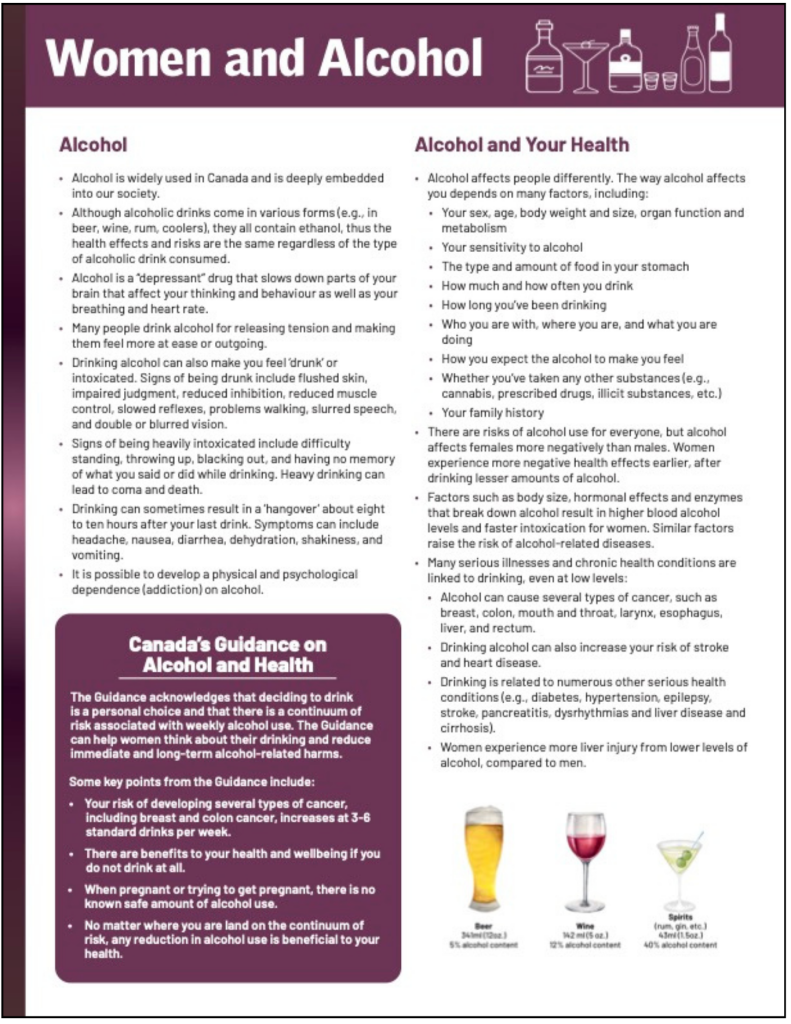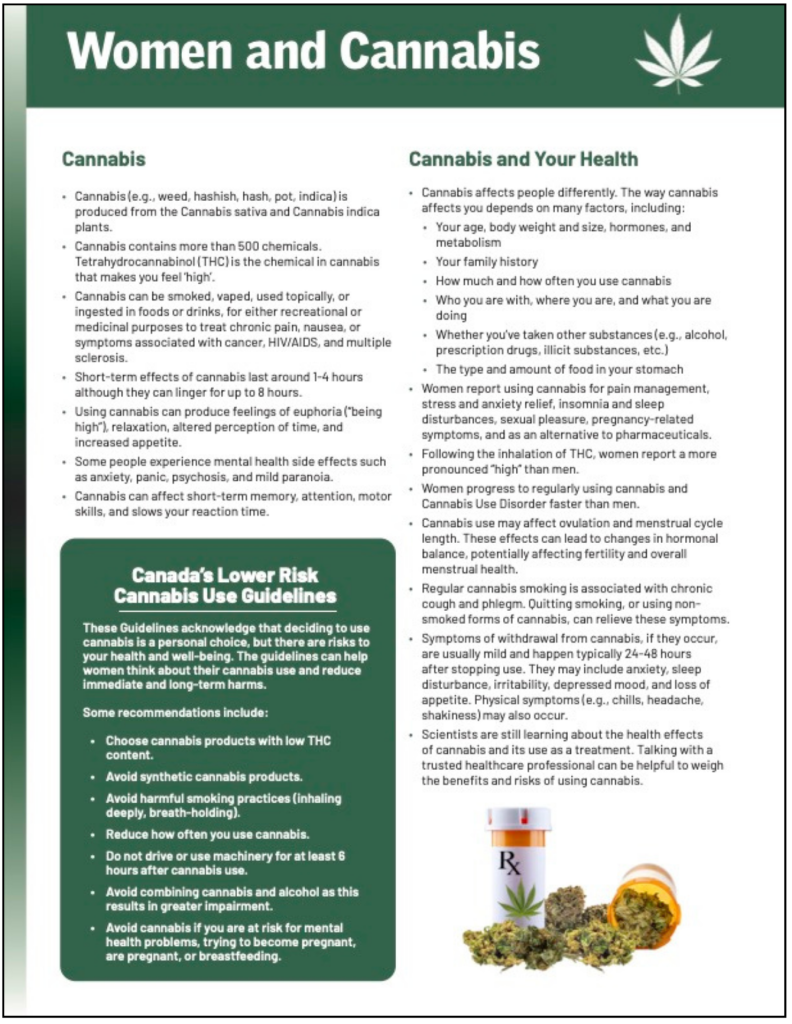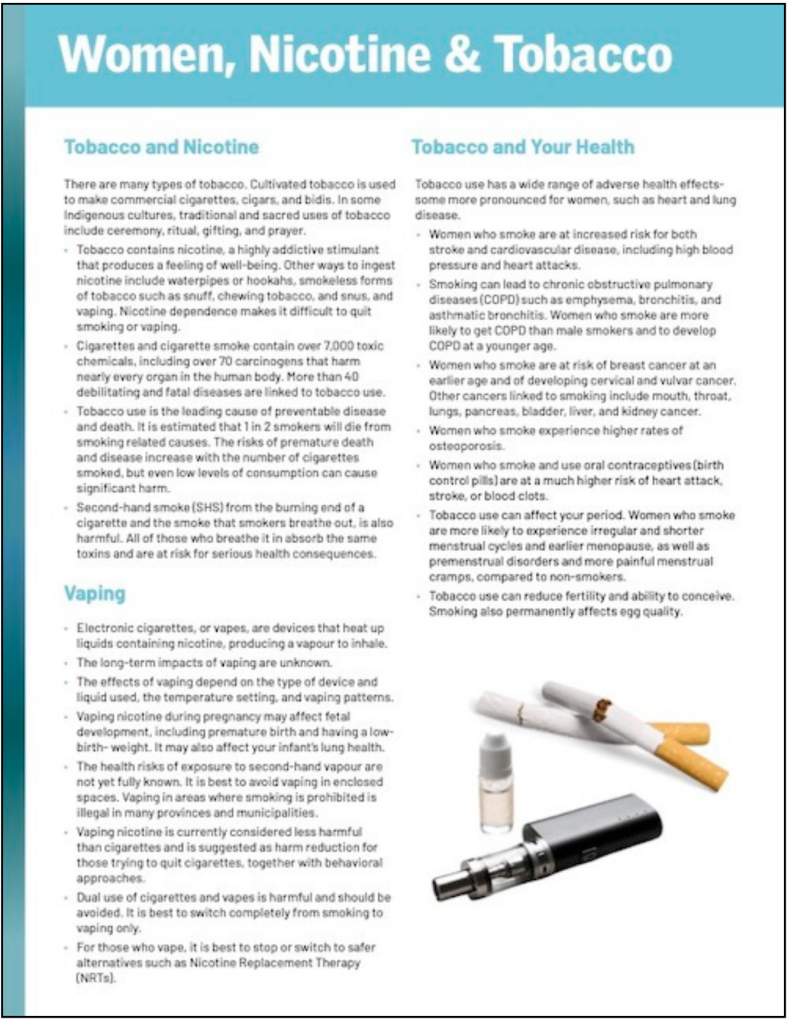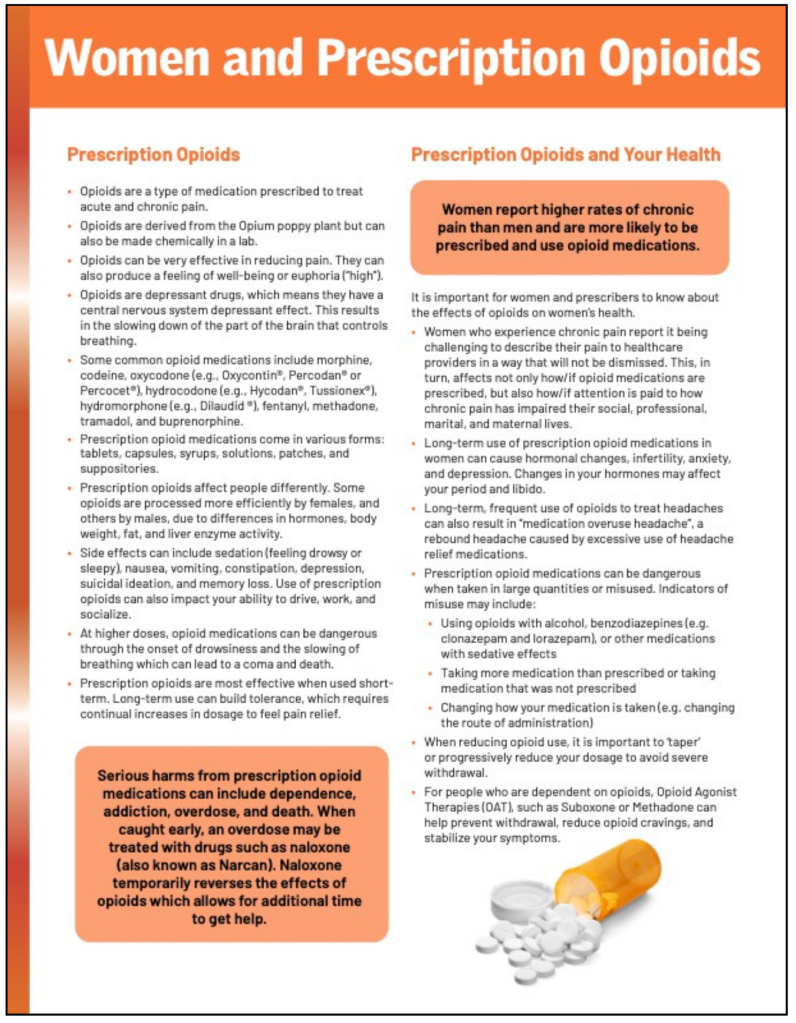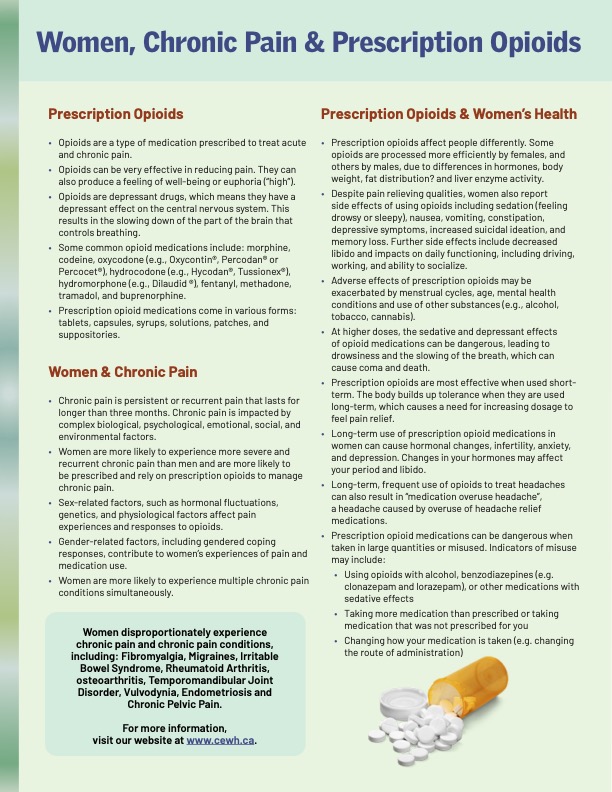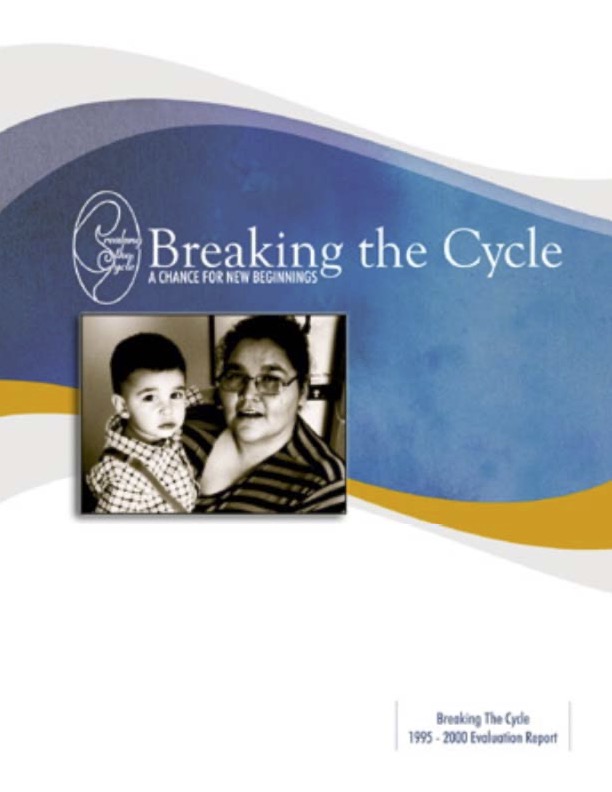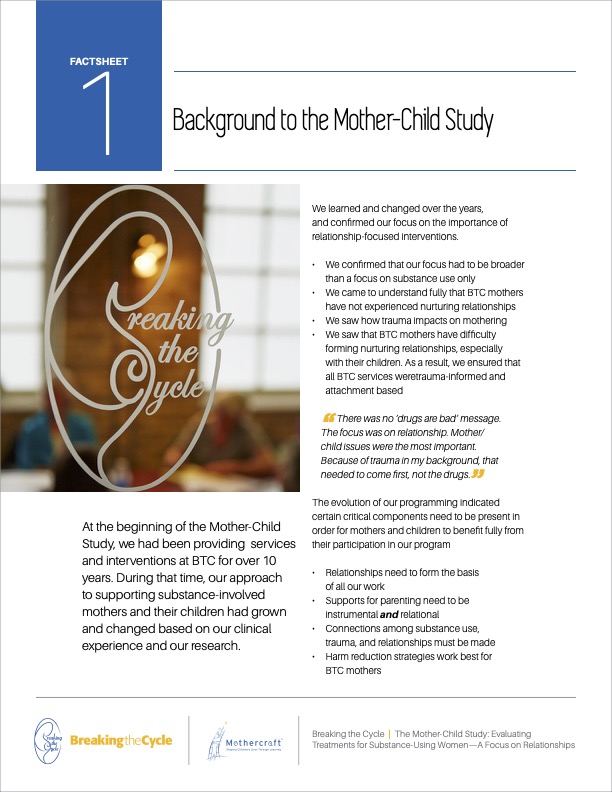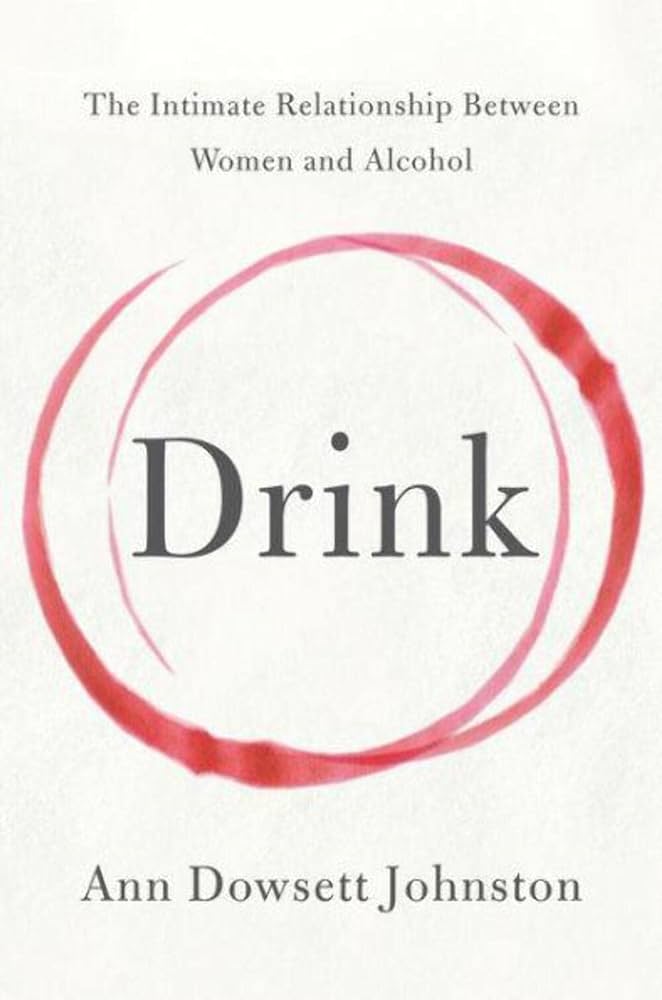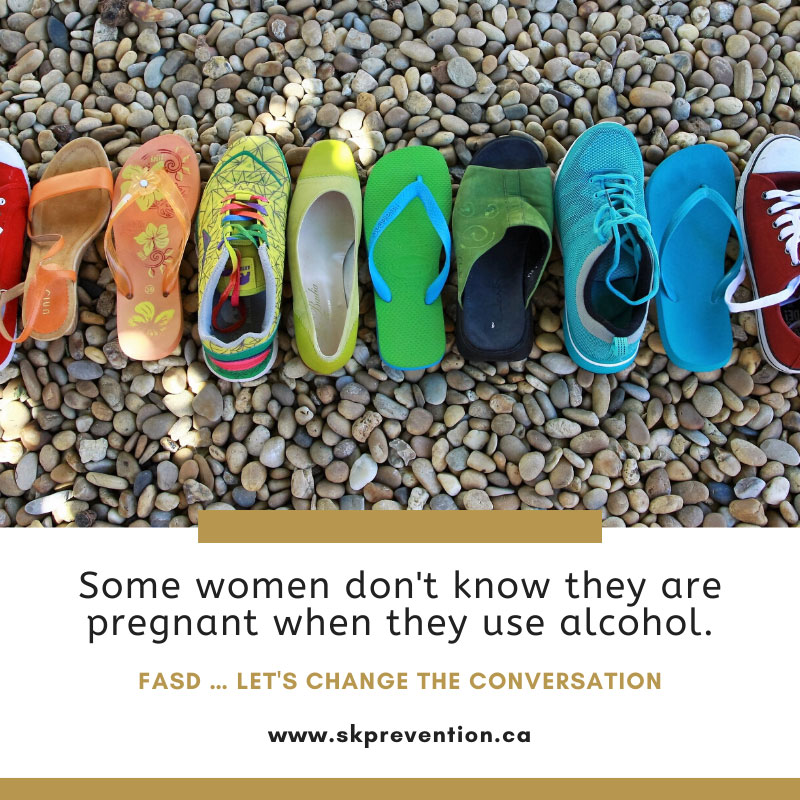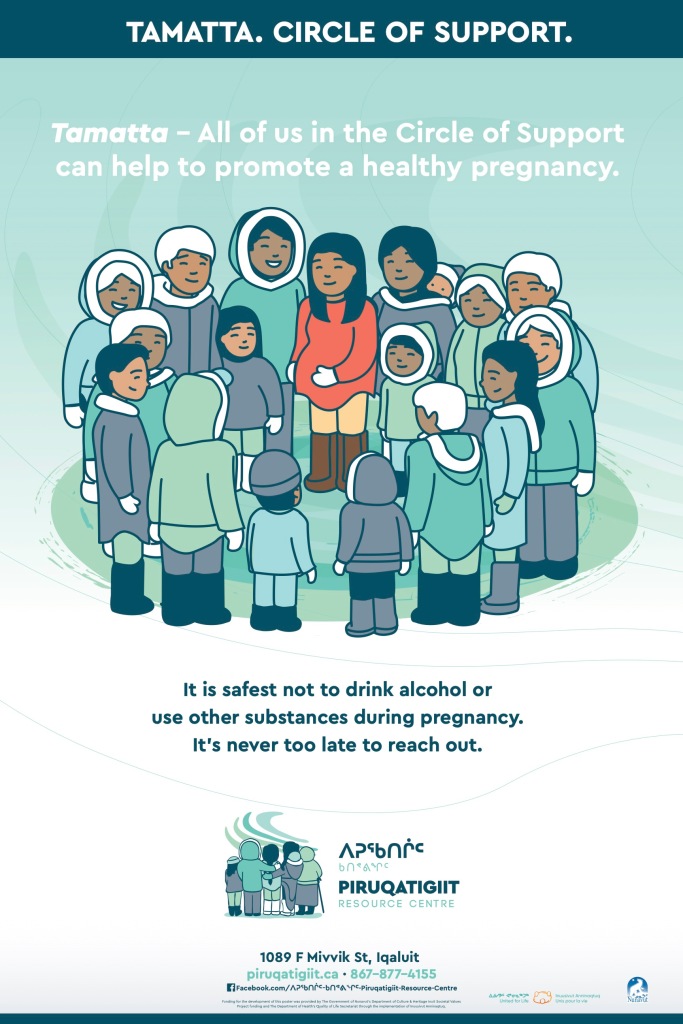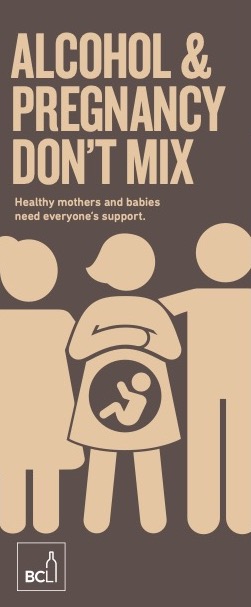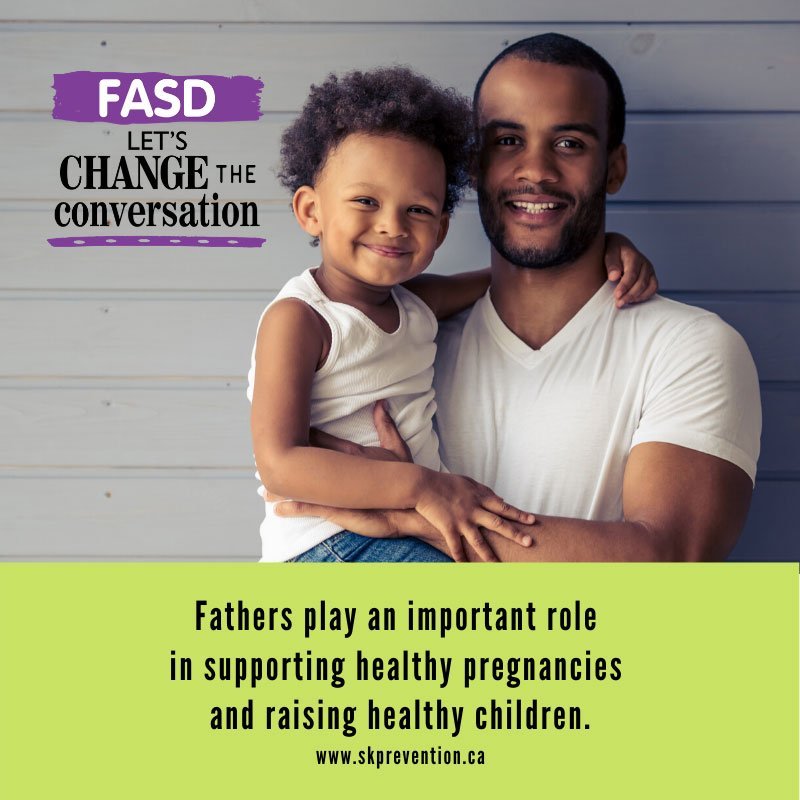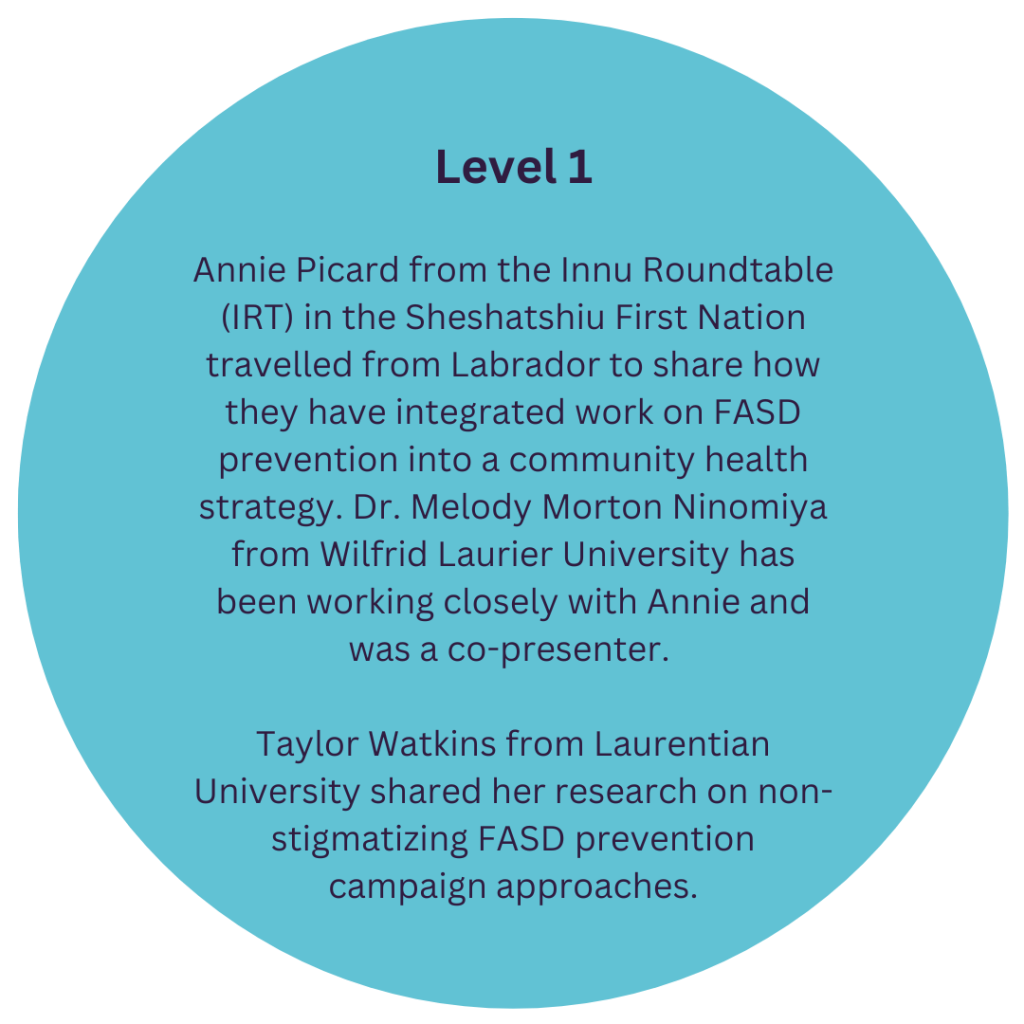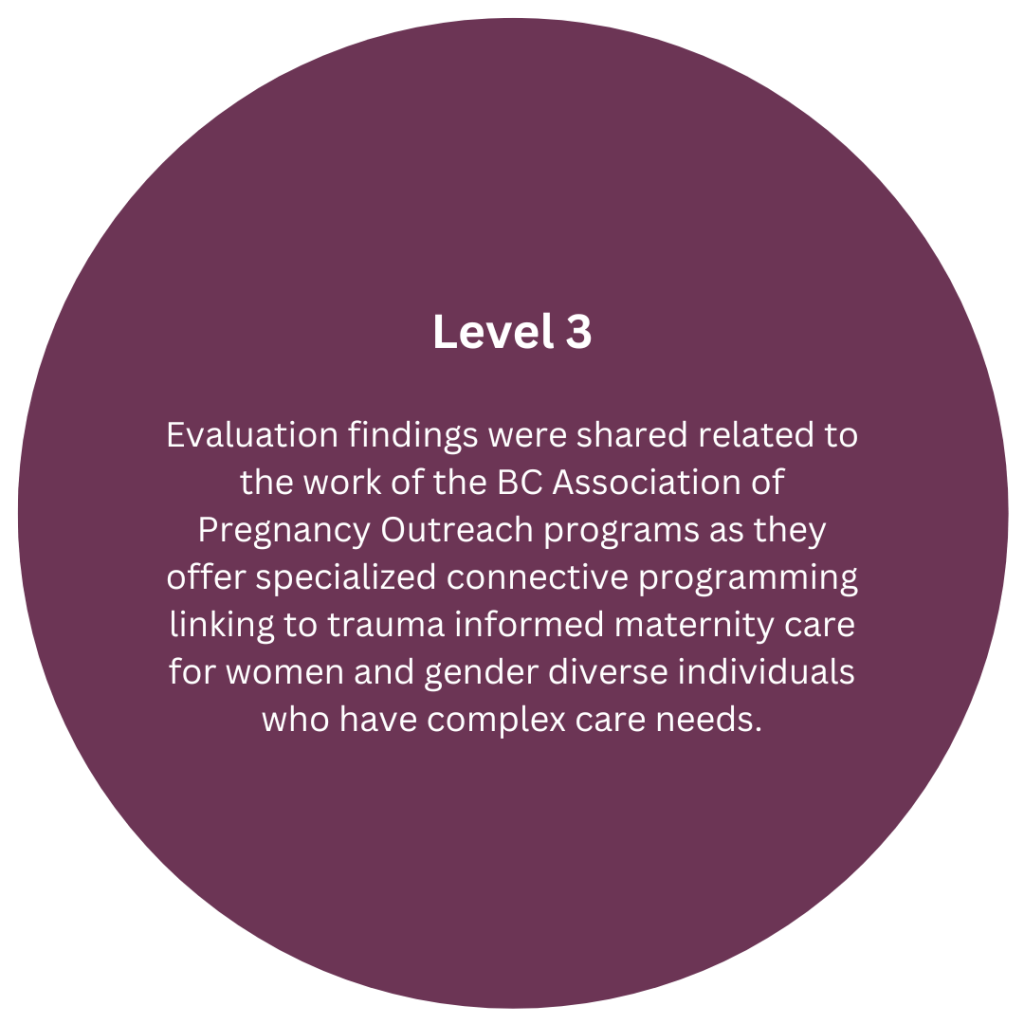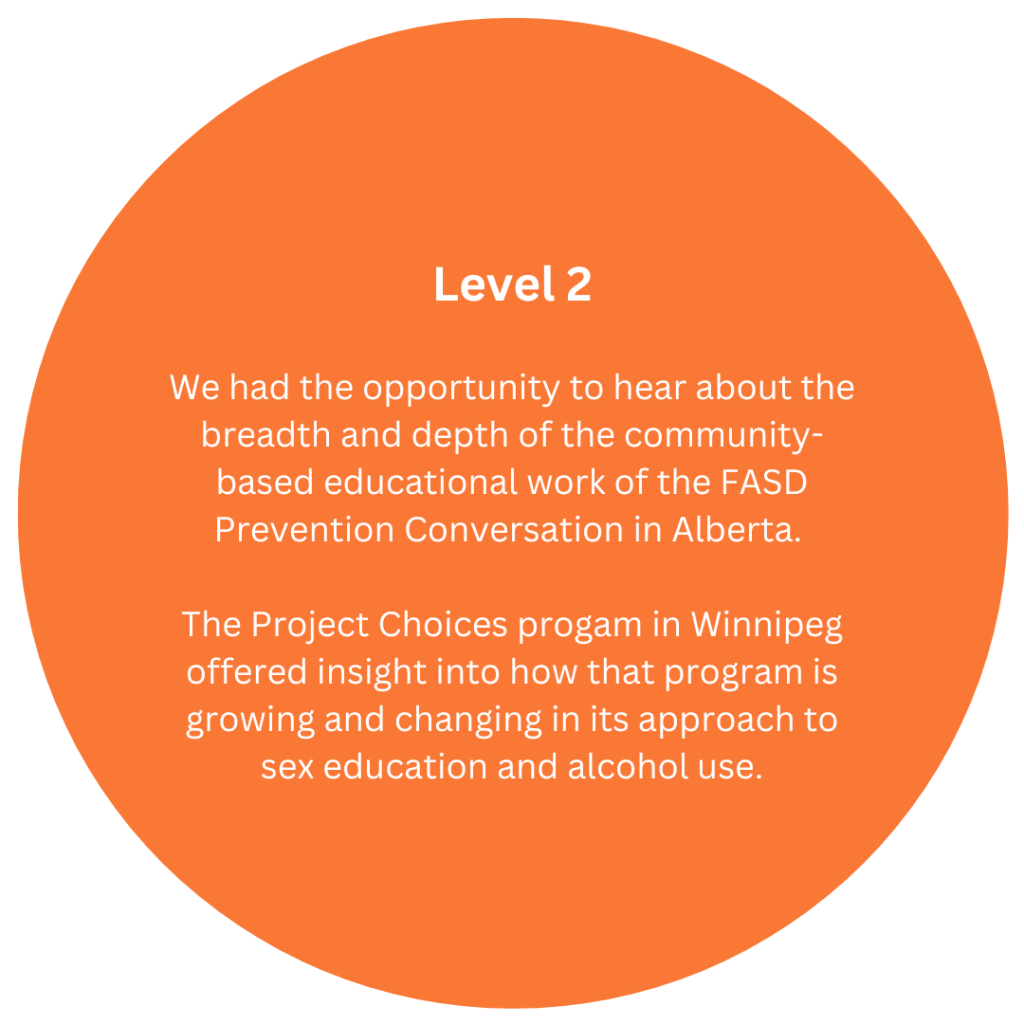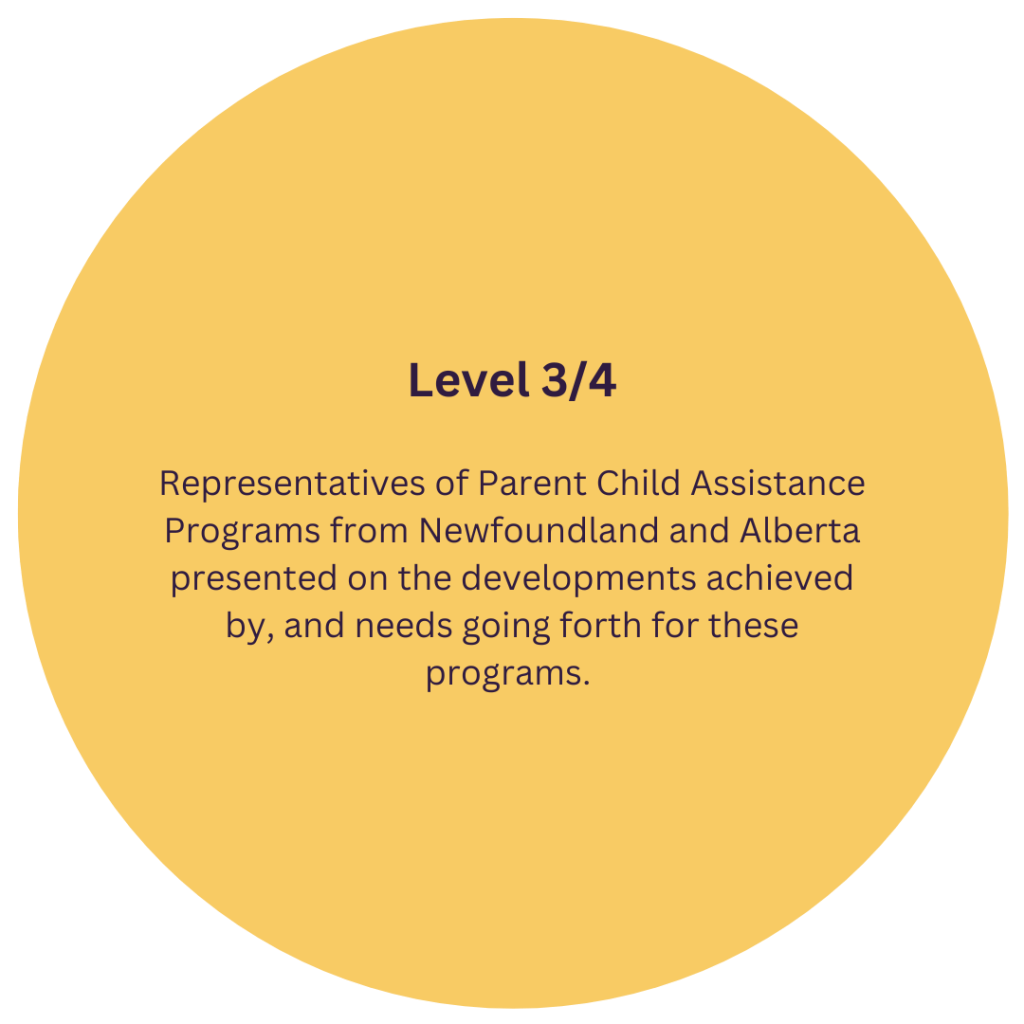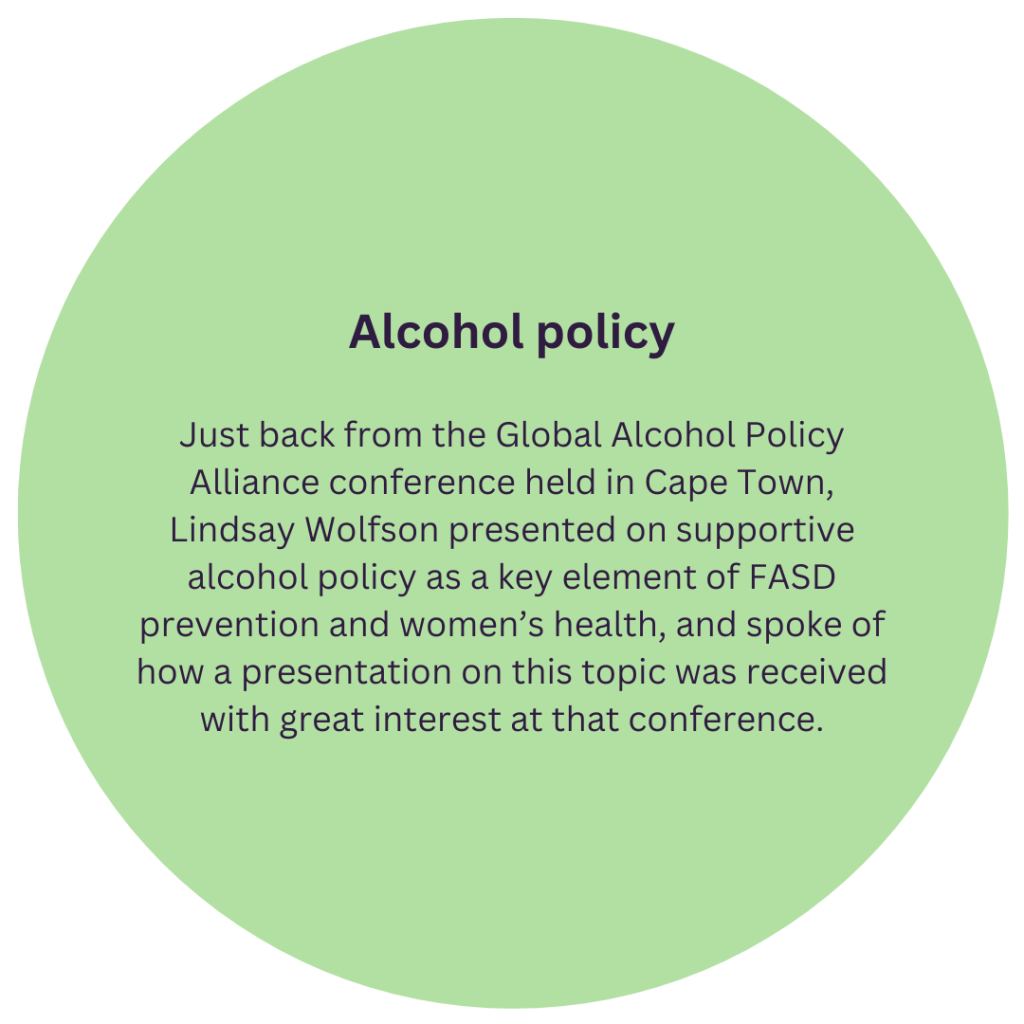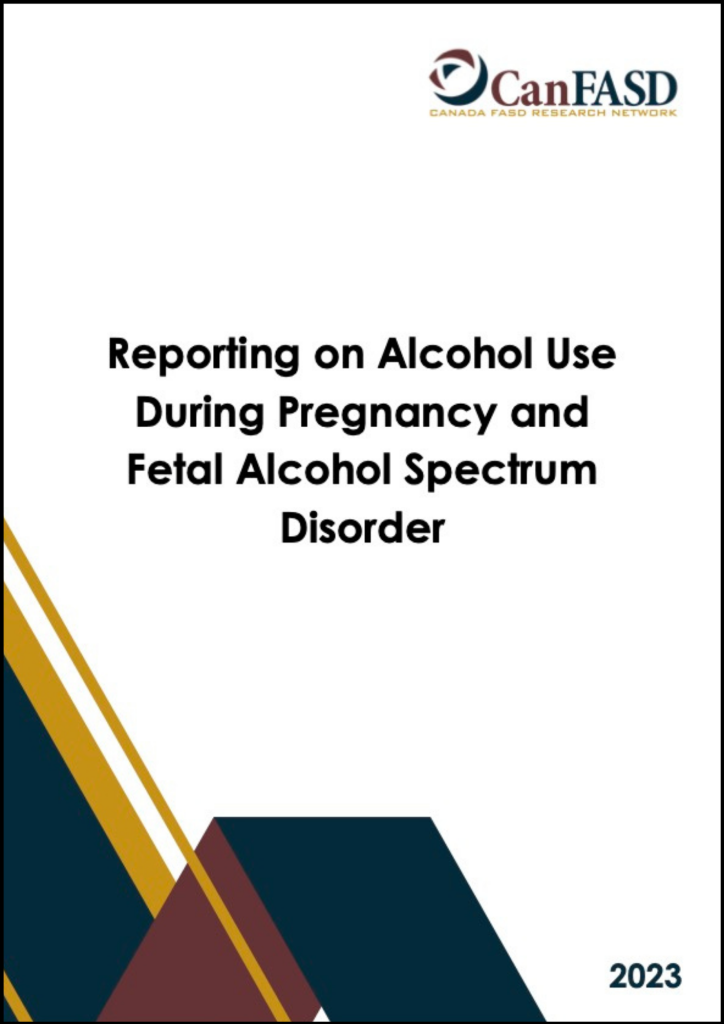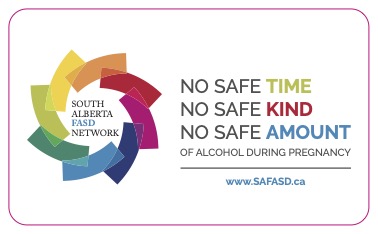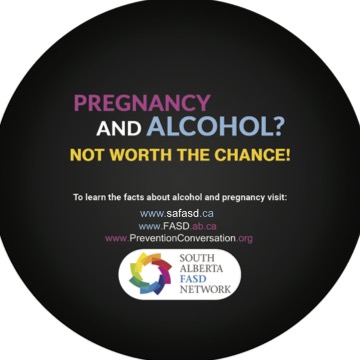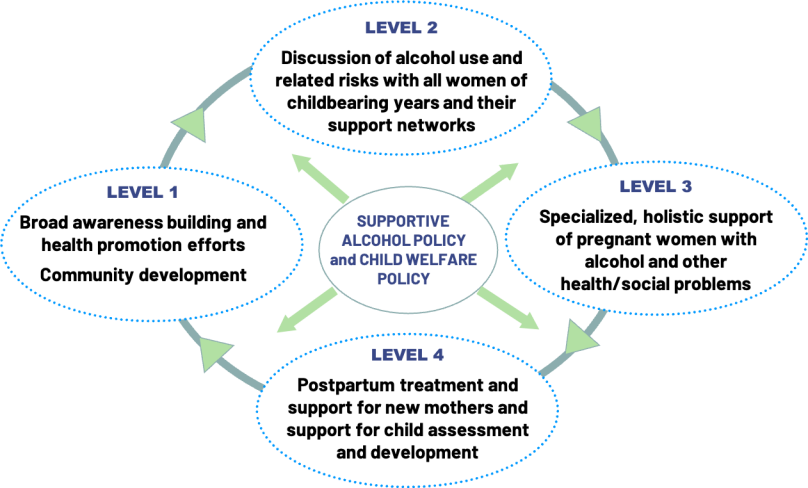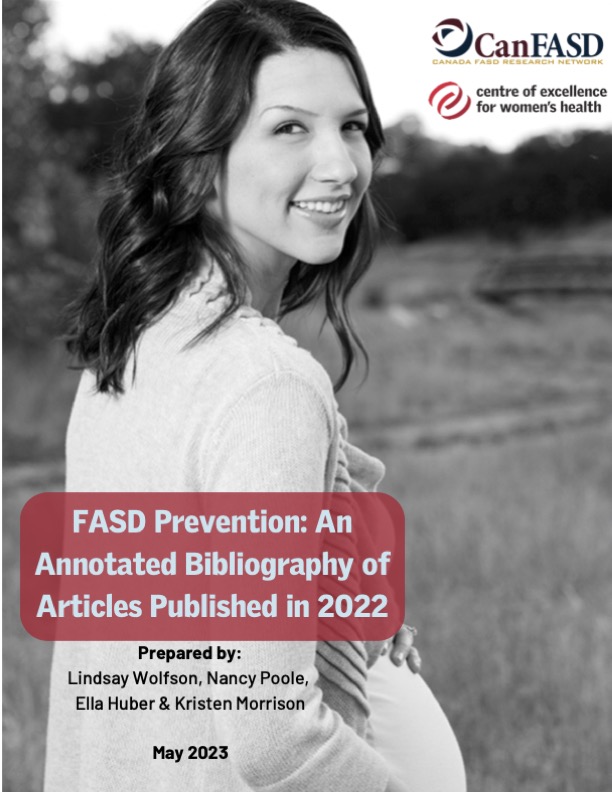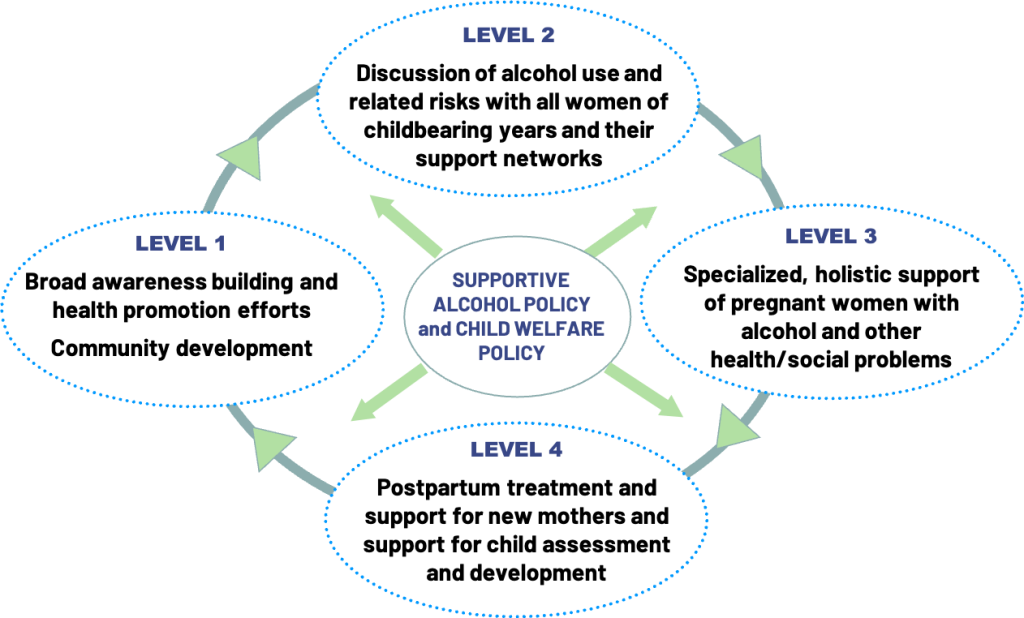When addressing alcohol use during pregnancy and the prevention of FASD, it’s important to remember that alcohol use does not occur in isolation. While it remains crucial to share information about the risks of, and to ask about alcohol use during the perinatal period, service providers should also be prepared to talk about how use of other substances together with alcohol increases risk. To assist service providers in having informed conversations about substances with women, we developed five info sheets on alcohol, cannabis, nicotine and tobacco, and prescription opioids. Originally created in 2017, they were updated in 2024 to reflect the most recent research and practice wisdom. Each sheet includes:
- General information about the substance;
- Health information that considers sex and gender factors relevant to women; and,
- The latest research related to pregnancy, breastfeeding, and parenting.
Below, we outline key updates to each sheet.
Women and Alcohol
The updated version of this sheet incorporates key points from Canada’s Guidance on Alcohol and Health, to think through the continuum of risk associated with alcohol consumption with women and how to reduce harms.
Find the info sheet here.
Women and Cannabis
Updates to this info sheet include key findings from a three-year study led by the Centre of Excellence for Women’s Health on sex, gender, and cannabis. The sheet includes information to contextualize why women may be using cannabis, such as for pain management, relief from pregnancy related symptoms and discomfort, and as an alternative to pharmaceuticals.
While the latest research on cannabis use during pregnancy and breastfeeding is presented, we also acknowledge that significant knowledge gaps remain at this time. For more information on this topic, visit the Reproductive Health page of our Sex, Gender & Cannabis Hub.
Find the info sheet here.
Women, Nicotine & Tobacco
Nicotine and/or tobacco are often used at the same time as alcohol and have significant health impacts on women, pregnancy, fetuses, and children. The updates to this sheet include the addition of nicotine use and vaping, and information on supporting women through withdrawal and cessation efforts from nicotine and tobacco.
As requested by many service providers, the updated sheet includes emerging research on the impact of vaping nicotine on women’s and perinatal health. For more information on this topic, check out our two resources on vaping during pregnancy and postpartum from a recently completed study on vaping cannabis and nicotine during the pregnancy and postpartum periods:
- Vaping During Pregnancy and Postpartum
- Why women vape during pregnancy and postpartum: Conversation starters for your practice
Find the info sheet here.
Women and Prescription Opioids
In the update to this sheet, we include information on the impact of prescription opioids on women’s health, including hormonal changes and other effects, in addition to risks of addiction. Additionally, recent research on pregnancy, breastfeeding and parenting are included, with updated information on Neonatal Opioid Withdrawal Syndrome.
Find the info sheet here.
As we updated Women and Prescription Opioid info sheet, we were also concluding a two-year project centred on women’s chronic pain and prescription opioid use, which prompted us to create a complementary info sheet with a special focus on chronic pain. It provides some reasons why women use prescription opioids for chronic pain, highlights women’s experiences of benefits and harms, and provides some guidance on comprehensive pain management. For more information on this topic, check out the project page on our website.
Find the sheet here.
Ideas for Action
Our hope is that service providers can use these sheets in their conversations with women, providing a tangible resource to ground discussions and for women to take home for further reflection. Designed to be user friendly, each sheet offers a concise yet comprehensive overview of the substance, accompanied by essential insights and information relevant to women’s general and perinatal health. Find all the sheets and explore more resources here.

